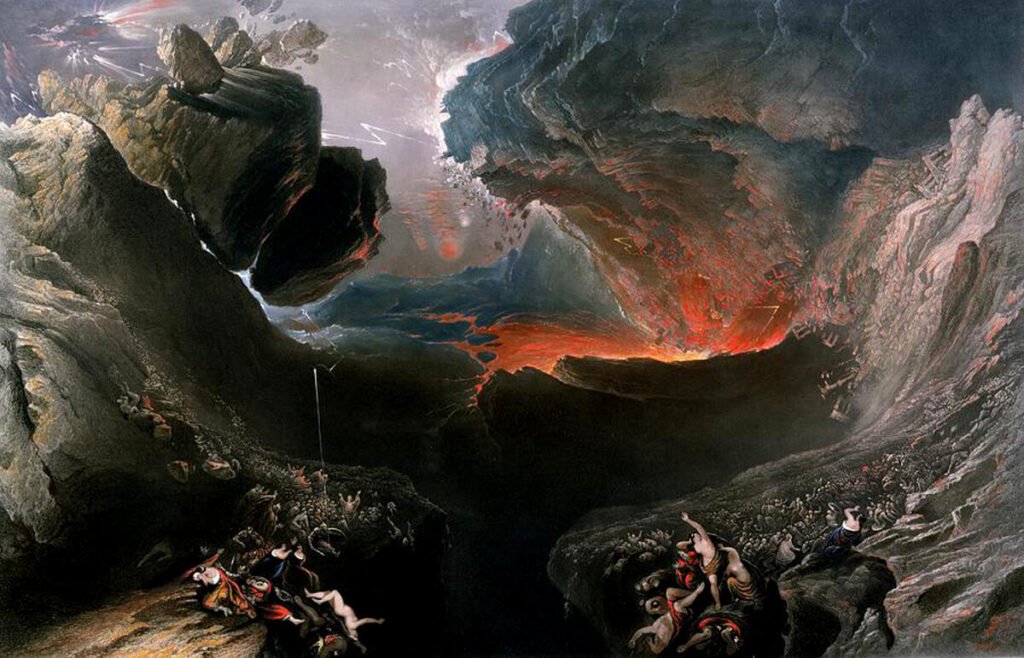Questions of what the Bible teaches about the end of the world have been given a renewed focus during the Covid pandemic. But in fact understanding what the New Testament says about this subject (known as ‘eschatology’ from the Greek words for ‘last things’ and ‘study’) affects the way we think about a whole range of things—Christian hope, the nature of discipleship, our expectations of answers to prayer and healing, and many other things besides.
This Zoom teaching morning, running from 9.30 am to 12.30 am on Saturday December 4th 2021, will explore the background and importance of the issue in the New Testament, and then look carefully at what the New Testament actually says about a range of issues connected with hope for the end of the world.
The cost is £10 per person, and you can book your tickets at the Eventbrite link here.
We will look at:
a. The background to this language in Jewish thinking
b. Jesus’ teaching in Matthew 24 and Mark 13
c. The Rapture—what is it, and does the Bible really teach it
d. What the New Testament says about ‘tribulation’
e. The beast, the antichrist, and the Millennium in Rev 20
f. The significance of the state of Israel.
We will explore the pastoral importance of getting our thinking right on this important subject. There will be a chance for some interaction and for asking questions.
The session does not require any prior expert knowledge; we will be looking carefully at the text of the New Testament and what is says in its own context, so you will need to bring a Bible.
I have studied and written on this subject extensively, including in my Tyndale Commentary on the Book of Revelation, and in my Grove booklet Kingdom, Hope and the End of the World, and will be drawing from these.
The cost is £10 per person, and you can book your tickets at the Eventbrite link here.
I look forward to seeing you there!
Additional note: Here are the slides that I used in the session.





























Ian,
Is it possible to register for this but then download a recording later? I am 8 hours behind you and will be traveling later that day.
Thanks,
Mike
Thanks for asking Mike. I wasn’t planning to, but someone else has asked too, so I will have a think about it!
I hope to offer a repeat in the New Year, and will make it a weekday afternoon so it should be accessible from your time zone.
Mike, I am repeating the event on a midweek afternoon, on 3rd February, so you might be able to make that…?
If the Parousia occurs before Saturday 4 December, will there be a refund?
Asking for a Scottish friend.
Fortunately this didn’t apply, so I haven’t needed to answer your question!
Great idea and would love to come along, but too short notice. A recording would be good, if possible.
I will offer it again in the new year.
Ian, And it was a very good morning! I thoroughly enjoyed your enthusiasm for the subject, and perhaps also the fact that you agreed with me most of the time 🙂 I will happily sign up for any future productions. Jon
Great! Glad you enjoyed it! Thanks for coming!
Hi Ian
I run the site CatholicBridge.com
I first encountered your writing with your amazing review of Richard Rohr’s “Universal Christ” I’m impressed with the integrity of your positions. Seems all our churches are struggling with political correctness at the highest levels and we in the trenches are trying to make sense of it and trying to formulate a response that is compelling, orthodox and inspired.
I didn’t see your talk on the apocalypse but am interested… my view is that it not just about the ancient Roman Empire, but about the next few years that we may have the privilege of living through.
thanks for commenting…but why should a text refer specifically to two different things? We can perfectly well read it as *about* the Roman Empire, but with *application* for us too, which is different.
See my article ‘Why are there so many interpretations of the Book of Revelation?’